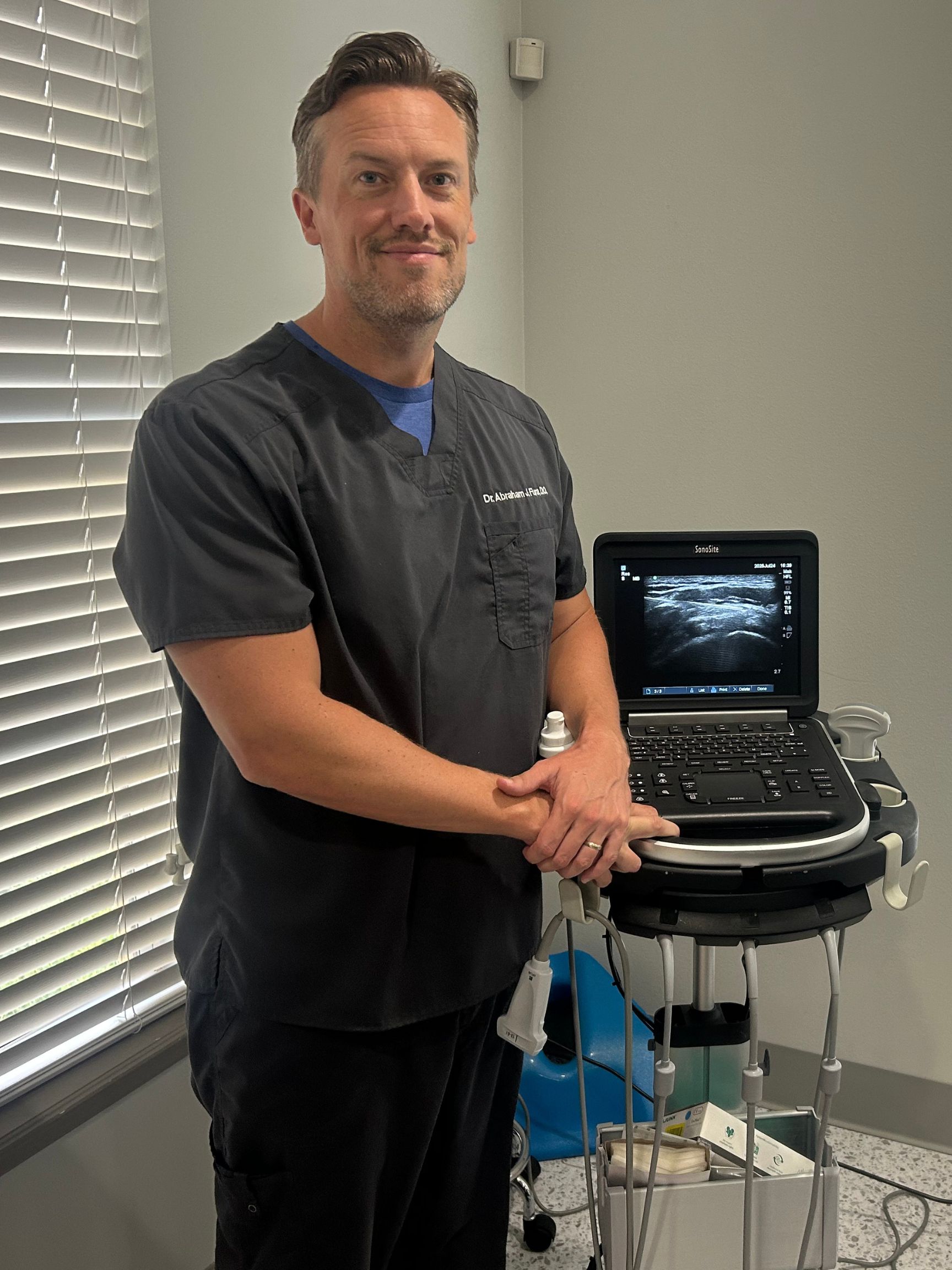
CONDITION OVERVIEW
Cervical radiculopathy, commonly known as a "pinched nerve" in the neck, occurs when a nerve root branching from the spinal cord becomes compressed or irritated. These nerves travel from your neck down into your shoulders, arms, and hands. When one is compressed, it can cause a cascade of neurological symptoms like sharp pain, numbness, tingling, and weakness along the nerve's specific path. This condition is not just neck pain; it is a neurological issue that requires an accurate diagnosis to identify the source of the compression and provide targeted, effective relief.

ROOT CAUSES
Cervical radiculopathy is caused by any condition that narrows the small openings (foramen) through which nerve roots exit the spinal canal, leading to compression.
The most common cause in younger adults. The soft, gel-like center of a cervical disc can bulge or rupture, pressing directly against the sensitive nerve root.
The most frequent cause in older adults. As discs wear out and lose height, the body can form bone spurs (osteophytes) that narrow the nerve passageway, causing stenosis.
A sudden trauma from a fall, sports collision, or auto accident can cause an immediate disc herniation or severe inflammation that compresses a nerve root.
Less commonly, issues such as spinal instability, tumors, or infections can lead to the compression of a cervical nerve root.

RECOGNIZING THE SIGNS
Symptoms of a pinched nerve are typically felt in the shoulder, arm, or hand, not the neck. They follow a specific pattern down one side of the body, depending on which nerve is affected.
A sharp, burning, or "electric shock" pain that shoots from the neck, across the shoulder blade, and down the arm into the hand and fingers.
A persistent "pins and needles" sensation or numbness in specific areas of the arm or certain fingers, depending on the nerve involved.
The compressed nerve can cause weakness in the shoulder, bicep, tricep, or hand muscles, leading to a weak grip or difficulty lifting the arm.
While the main symptoms are in the arm, many patients also experience a deep, aching pain and stiffness in the neck itself.
Arm pain that significantly worsens with certain neck movements, like looking up or turning your head, or with actions like coughing or sneezing.
During a physical exam, a physician may find that reflexes in the bicep, tricep, or brachioradialis muscles are diminished or absent.
ADVANCED SOLUTIONS
The primary goal of treatment is to decompress the affected nerve root. Fortunately, most cases of cervical radiculopathy respond very well to conservative, non-surgical therapies.
Radiating arm pain, numbness, or weakness is a clear sign that a nerve in your neck is under pressure. Don't ignore these symptoms. An accurate diagnosis is the key to targeted, effective treatment that can relieve the pressure on your nerve and restore comfort and function. Contact us to find the source of your symptoms.